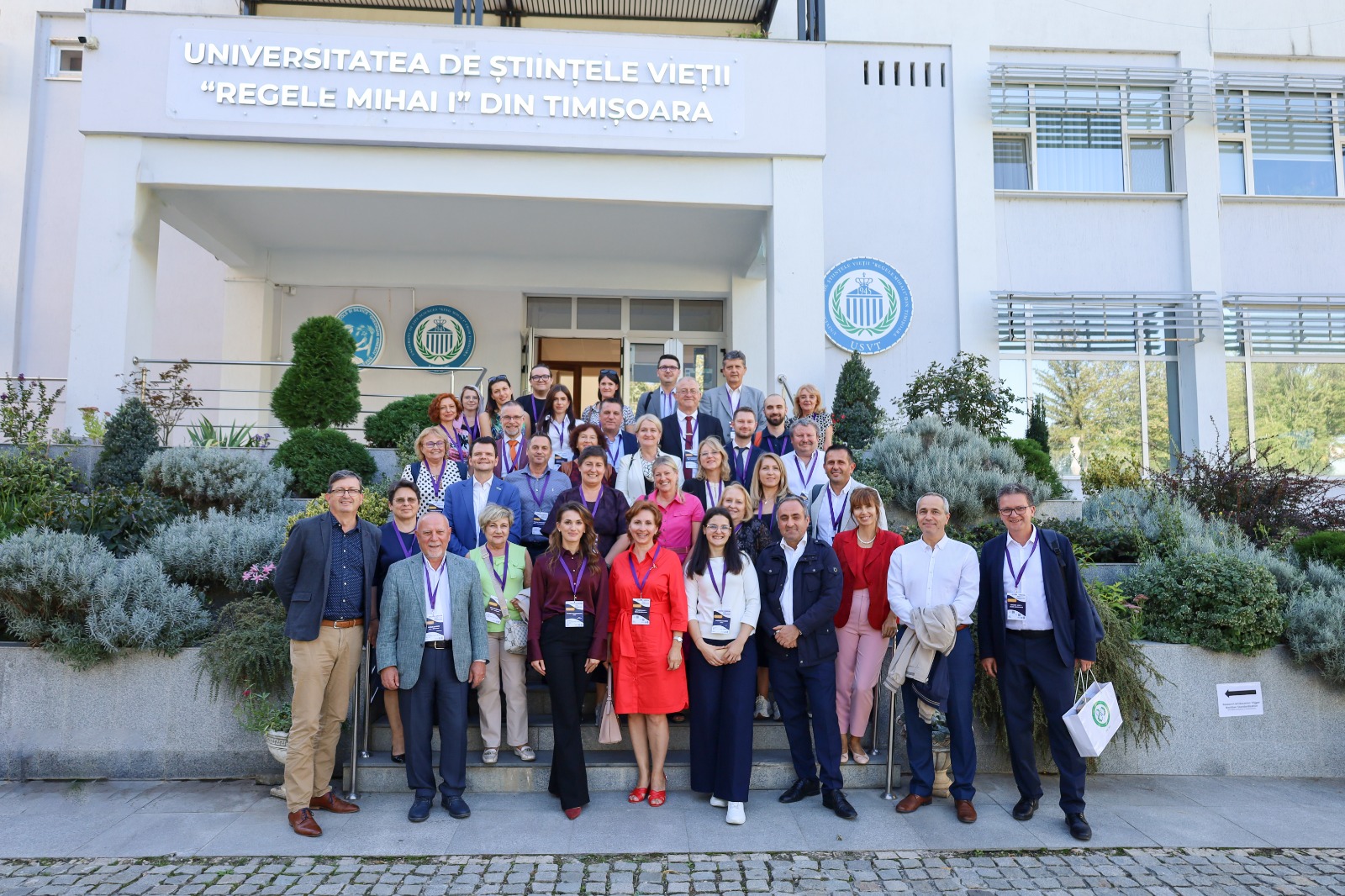On 22–23 September 2025, Timișoara became the hub of European standardization, as ASRO – the Romanian Standards Association –, together with the University of Life Sciences "King Mihai I of Romania", hosted the 10th Balkan Conference on Standardization under the theme “Research & Education – Trigger NextGen Standardization.” The two-day hybrid event gathered representatives from CEN and CENELEC, ETSI, ISO, and the national standardization bodies of Albania, Bosnia and Herzegovina, Bulgaria, Croatia, Montenegro, Romania, Serbia, and Slovenia, along with academic leaders, policymakers, and industry specialists.
With over 40 participants attending in person and around 50 joining online, the goal of the conference was to share best practices, foster collaboration, and inspire the education institutions from the Balkan region to consider integrating standardization into their work.
The opening session, introduced by Alexandru Stoichițoiu, President of ASRO, set the stage for discussions on the role of standardization in supporting education, research, and competitiveness.
The first day featured a rich agenda, covering national and European perspectives on education and research in standardization, which demonstrated how governments and European institutions collaborate to advance education and research in standardization. It also included a session on shaping tomorrow’s standardization landscape, with a focus on the importance of global collaboration and the impact of standardization initiatives on education worldwide, as well as a panel debate on education about standardization that brought together distinguished representatives from leading academic institutions. They shared their experiences, challenges, and success stories in teaching standardization, as well as strategies for preparing students to become future professionals in this field. The day concluded with a session on boosting business competitiveness through education, research, and standardization, which highlighted the strategic alignment of these components to foster innovation and build a resilient business ecosystem.
The second day, opened by Iuliana Chilea, Director General of ASRO, focused on powering research, emphasizing innovations brought to market with the support of standardization and the close collaboration between research and standardization. This was followed by the session Driving excellence in national standards bodies from the Balkan region, which provided an in-depth look at strategies to foster innovation and strengthen collaboration with academia. This session underlined how NSBs from the Balkan region implemented best practices aligned with international benchmarks, ensuring that education and standardization work together effectively.
A key highlight was the session dedicated to the AFCOS Project, a Horizon Europe project that strengthens collaboration between academia and standardization bodies. The session presented key milestones, training roadmaps, and educational strategies, offering a concrete model for integrating standardization into higher education. The conference concluded with an open discussion and closing remarks, underlining the importance of continued regional cooperation and the development of next-generation standardization experts. ASRO thanks all participants and partners for their valuable contributions and commitment to strengthening the role of standardization in education and research.
“This edition of the Balkan Conference confirmed once again that standardization is not just a technical instrument, but a true enabler of innovation, education, and competitiveness. By bringing together experts, academia, and industry, we are shaping a common vision for the future of standardization in the region – one that is collaborative, agile, and aligned with European priorities,” said Alexandru Stoichițoiu, President of ASRO.




